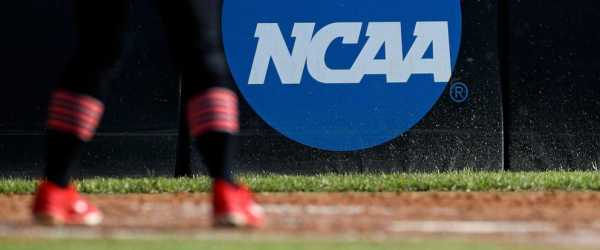
STORRS, Conn. — Two years after the NCAA cleared the way for college athletes to earn money off their fame and celebrity, digital technology is allowing some of them to get paid by their fans without having to do very much in return.
Most deals struck by athletes under name, image and likeness guidance from schools or states are in exchange for something — an athlete endorsement on social media, for example, or an appearance at an event.
It is now possible to pay athletes money while receiving something far less tangible: a digital non-fungible token, or NFT.
Brent Chapman runs a platform called myNILpay. The app allows fans to choose a college athlete and send them money; the app then sends a notification to the athlete's school email. The athlete fills out a form and the money is then transferred via Venmo or a similar payment method.
In exchange, the fan receives a unique computer-generated piece of “art” with the athlete's signature on it. Chapman said that serves as the quid pro quo.
“This just gives an opportunity for fans to directly support athletes for whatever the reason they want,” he said. “Now, if a kid kicks the winning field goal, you know, a thousand people can go out and give them 50 bucks. That’s pretty cool, right? And those are the type of things that I think we’ll see happen as we get into the football season and stuff.”
RJ Cole, a former point guard at UConn and Howard University, is using the app to send money to about 50 current men's and women's basketball players at the two schools.
He said he is not really interested in the NFTs; he just wants to support the players on those teams without having to set up a basketball camp or buy something from each player.
“Now it’s easy,” he said. “A fan can just pay you right away and it’ll go right to you. I mean, I think it’s like a huge game changer.”
Pay for play remains off limits under NCAA rules and is a longstanding pillar of amateur sports. But with millions of dollars now available to college athletes under NIL and via booster-funded collectives, the rules are under instense scrutiny.
Joshua Frieser, a sports law attorney who specializes in NIL compensation, said the NCAA is unlikely to challenge the new app because it would have to prove the NFT the fan receives is not worth the money they paid for it.
“There’s plenty of things where you would maybe raise an eyebrow and say, well, I don’t know if that’s actually market value, but certainly the NCAA has not at any point gotten anywhere close to actually regulating that and saying, no, that’s too much,” he said. . “And from my perspective, I don’t think they’re going to.”
He also noted that there also is no current enforcement mechanism to ensure the pay-for-an-NFT model isn't misused.
What is to prevent booster groups from various schools from getting into bidding wars for recruits or players in the transfer portal? “Nothing,” Freiser said.
And what's to prevent a gambling criminal from paying athletes to shave points or throw a game?
“I think it would be very hard for for anyone to really discover unless you have, you know, sort of an organized scheme where with real systematic cheating going on," he said.
Blake Lawrence, CEO and co-founder of Opendorse, which helps colleges and athletes navigate the NIL landscape, said he doesn't think the idea of trading cash for NFTs will catch on. Most fans, he said, want something more tangible in exchange for sending money to athletes.
“That's whether it’s a physical product like a jersey or a shirt or tchotchke featuring the athlete’s name, image or likeness or a service, like an appearance at a birthday or a video shout-out they can share with their friends,” he said. "The consumer in our experience desires either a physical product or some physical effort from the athlete to create value."
Still, he said, that doesn't mean that some digital assets won't become an important part of the NIL landscape.
Another app, called Burrst, is being launched to link athletes and consumers via blockchain, creating digital contracts that allow automatic payments once the athlete provides a good or service such as a video birthday greeting. Creator Grant Sapkin said digital trading cards are among the products the athletes can sell.
In addition to having pictures of the athletes and statistics, these cards can also include passcodes for unique experiences, such as meet and greets. Unlike NFTs, they can be bought, sold or traded among fans as a type of investment.
The idea is that like a physical trading card, as the athlete's fame increases, so does the value of the card.
“You can be part of that athlete’s journey,” Sapkin said. “And there’s different types of consumers. There’s ones that just want to support the athletes — they generally like that person. There’s other ones that want to trade it to make money and profit themselves."
___
AP college sports: https://apnews.com/hub/college-sports
Sourse: abcnews.go.com






